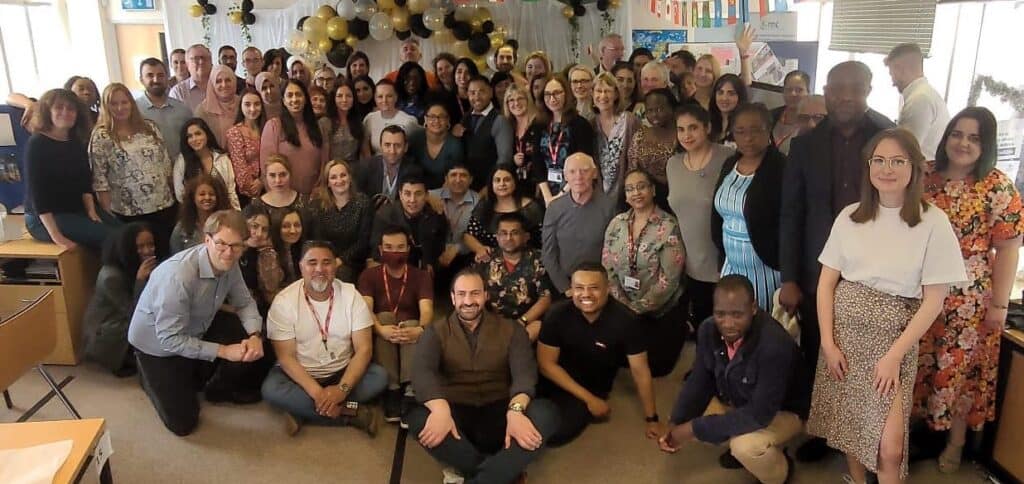In honour of the World Day for Cultural Diversity, we sent our new journalism volunteer, Eiman, to meet some of the RMC team and hear some of their stories. With 24 different nationalities represented in the staff team, 13 through the volunteers and 181 nationalities throughout our clients, RMC is a widely diverse and multicultural place to be!

Ernest’s story
Ernest Eichie is originally from Nigeria and is working as an Immigration Caseworker at RMC. He came to the UK as a person seeking protection and later got the right to remain. Although living in the United Kingdom, Eichie is proud of his Nigerian roots. He believes there is no food which he can enjoy more than his traditional cuisines like Jollof rice, Egusi soup and Akara. He is proud of Nigerian textile Adire, which is the indigo-dyed cloth made in Southwestern Nigeria by Yoruba women using a variety of resist-dyeing techniques. Working at RMC is an opportunity for him to meet people from diverse ethnic, cultural, and religious backgrounds. Ernest finds it fascinating to get to know people from around the world with incredible differences and he says,
“We need to embrace the differences because that is the tool for togetherness and we need to work together to keep life going. Our existence is dependent on our relationship with one another and thus there is no way not to accept the differences we have.”
Reece’s story
Reece Colley is a White British man working as an Immigration Caseworker at RMC. Reece takes pride in his British cultural and social values, the rich history of the United Kingdom and its food. He grew up in Solihull, a large market town south in the West Midlands. Reece lived in an area which is less diverse than neighbouring Birmingham and thus, unfortunately, preconceived stereotyping of other cultures was an issue he saw in his community. However, when Reece started working at RMC where he has to deal with people from diverse cultures, he got an answer to the clichés and unfounded judgements which can promote negative attitude towards other cultures. Reece believes communication is the key to respecting cultural diversity and he is of the opinion that if humans have a number of differences, there are certainly a huge number of similarities too. Reece remarks,
“We need to focus on the similarities we share as humans. We all eat, sleep, have emotions and are all mortal. The fact that we all feel pain and our biological needs are all the same makes us accept the little differences we have. The differences including the ones in religious, social or political ideologies are the things we need to find beauty in and appreciate.”
Azia’s Story
Azia (name changed) is a British citizen with her parents originally from Pakistan and is working as an Advisor at RMC. For Azia the landscape of Pakistan with lofty mountains in the north is mesmerising. She is proud of the ethnic and linguistic diversity of Pakistan. Azia’s first job was a life-changing experience for her at RMC where she experienced the inclusion of diverse communities with equal opportunities for them. She enjoys working with staff members of diverse ethnic backgrounds as well as clients of different nationalities in her office and she believes,
“Cultural diversity is what we all need to enjoy and appreciate. Understanding cultural diversity is a key to our inner happiness and the stability of societies at large.”
Bleain’s Story
Bleain Dawit is originally from Eritrea, a country in East Africa. Bleain is working as a Receptionist at RMC. She is fascinated by Eritrean culture with its location on the Red Sea. She likes her cultural dress known as Tibebe, cultural food called Doro Wat, a spiced chicken, and traditional dance known as Eskista dance. Eskista is an iconic dance which is not just a form of entertainment but also tells different stories while teaching lessons about life. Eskista is also called ‘dancing shoulders’. Bleain gets a sense of satisfaction in working with people from diverse communities at RMC. She firmly believes,
“Life is full of colours which represent our differences. These differences add beauty to the canvas of life, promote inter-faith harmony, play a role in peace-building and resolve our identity issues.”
